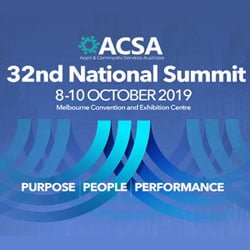Concurrent Sessions – Equality… Slater, Collins
$13.00 – $20.00
Concurrent Sessions – Equality… Slater, Collins
Description
I’m here, do you see me?
Mrs Angela Slater (ACNA, Osborne Park, Australia)
Abstract:
Choice, control, independence, values, motivation and purpose – all words that can illicit images or judgements. What do each of these words truly mean in Aged Care? How are we connecting with people to support decision making about life changing events such as moving in to a residential facility, loss of spouse or adapting to a caring role. How do we see the person first, build resilience, encourage goals and aspirations that provide a sense of purpose, excitement and a sense of adventure when we have processes and systems at the core of our interactions?
Connecting is at the core of human interaction yet for so many older Australians their voices are not heard, their desire to live their best life in a way that supports independence requires an empowering approach by every professional in the aged care system. So how do we do it? We step in to their shoes we experience life through their eyes, we promote dignity of risk, respect and individuality to ensure we are proactive in our engagements.
“No decisions about me, without me” (Liberating the NHS, U.K. 2012)
ACNA would like to take this opportunity to submerge you in to the world of promoting quality of life. The workshop would offer simulated learning opportunities that allow participants to experience life through the eyes of another human being.
Workshop format: Simulated learning activity – Interpreting information during task analysis
====
“You can’t say that!” – Understanding and addressing the tricky issue of ‘benevolent ageism’ in aged care – and society at large.
Andrew Collins (The Benevolent Society, Sydney, Australia)
Abstract:
‘Ageism’ refers to prejudice, discrimination and mistreatment of an individual based solely upon their age. According to the WHO , “ageism is widespread and an insidious practice which has harmful effects on the health of older adults… Ageism is everywhere, yet it is the most socially ‘normalized’ of any prejudice, and is not widely countered”.
In the aged care context, ageism is most readily associated with ‘malevolent’ expressions of neglect and abuse: physical, psychological, financial, sexual.
But ageism also has positive or ‘benevolent’ expressions that may seem well-intentioned but are equally harmful. Demeaning language and expression often used in health and aged care settings presents a case in point. The phenomenon described as ‘elderspeak’ is characterised by the treatment of older people more as children than as adults. It includes the way communication is framed – like speaking for the person, describing certain behaviours (eg. expressions of love or sexual attraction, dancing, using social media) as ‘cute’ or ‘adorable’; and using the pronouns ‘we’, ‘us’, and ‘our’ in place of ‘you’ (“How are we going today?”). It can involve the use of pet names like ‘sweetie’ and ‘darling’, as well as slow, loud speech and a sing-song voice.
Using engaging organisational theatre techniques, this interactive workshop will help participants to understand and identify benevolent forms of ageism. But importantly, it will empower participants to find new approaches to framing and delivering communication in care settings that ensure every client or resident’s dignity is respected and their human rights retained.
Biography:
Andrew Collins is the Executive Director, Ageing Services for the Benevolent Society, which operates a range of services for older people including; Home Care Packages, Respite Services and other home supports.
Andrew is committed to providing services that allow people to live their best lives and has been working at this since he started as a Registered Nurse 24 years ago. Since then he has worked in leadership positions across the Government and NFP sectors including; the Department of Health and Ageing, the Office of the Registrar of Community Housing and Uniting Care NSW ACT. He holds a Bachelor of Nursing and Graduate Diploma in Public (Healthcare Management).
Additional information
| Format | MP3 AUDIO, MP4 VIDEO |
|---|

